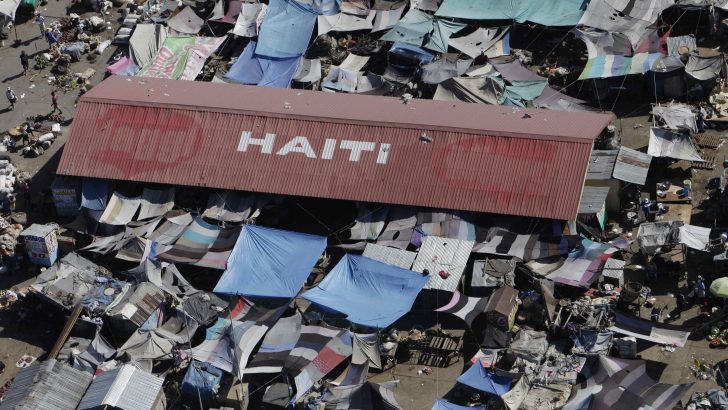The View
Trust is much easier to maintain than to re-establish after it has been lost. The scandals engulfing Oxfam illustrate this clearly.
Serious allegations have been made regarding Oxfam personnel making use of women in prostitution during an aid operation in earthquake-hit Haiti.
Worse, allegations appear to involve not just women working as prostitutes, but minors as well.
However, as Catherine Bennett of the Guardian commented, we have yet to hear from Amnesty International, which supports the decriminalisation of prostitution, including decriminalising those who profit from it, more commonly known as pimps.
Bennett quotes Amnesty as saying that it’s people “who live on the outskirts of society that are forced into sex work. It may be their only way to earn a living.”
Bennett comments savagely: “Once you see it that way, Oxfam workers who live, courtesy of charitable donations, in villas suited to large pool parties, can be seen as doing prostitute attendees a tremendous kindness.”
Revulsion
Most people share Bennett’s revulsion at the abuse of women already living in dreadful conditions. Likewise, while few would begrudge aid workers living in decent conditions, a pool in an area devastated by earthquakes seems like an unnecessary luxury.
Imogen Wall, a former Irish aid worker who runs a support group for people working for aid NGOs, also commented on the allegations.
She said: “Everyone is hanging Oxfam out to dry, but actually it’s all agencies who have this problem to some extent because we are a sector that works with vulnerable people. Any sector that works with the most vulnerable is going to attract one or two dangerous people who want to abuse others. It’s not a new phenomenon.”
UN Peacekeeping forces have been plagued by similar scandals, everywhere from Haiti to the Central African Republic, but few prosecutions have followed.
Associated Press did an exposé in 2017 saying that there have been more than 2,000 allegations against peacekeepers, many of which involve children.
Of course, an allegation is not the same as a proven assault and due process is important. However, the UN has been very dilatory in how it responds to such cases, saying the countries who provide the peacekeepers must take responsibility.
In relation to the Oxfam case, the failure of management to take action and in at least one case, the re-deployment of someone after allegations had been made, has eerie echoes of scandals involving church personnel.
When authorities do not act promptly and transparently, it has dreadful repercussions for trust. For example, a 2011 poll conducted by the Iona Institute, of which I am a patron, found very high levels of unfavourable opinions of the Church.
In response to a question about whether when they think about the Catholic Church in Ireland their view is favourable or unfavourable, among over 55s, only 55% of them regarded the Church favourably, and this dropped as low as 18% among 25-44 year olds.
When asked why, 56% suggested that sexual abuse of children had created this unfavourable viewpoint.
However, people also grossly over-estimated the number of priests who had committed the crime of child abuse. The average estimate was 28% of priests, with 18% estimating over 50%.
The true figure is 4%, according to the John Jay Institute. Citing the lower, accurate figure, is not to minimise, much less excuse the sexual abuse of children, or of anyone, by priests and religious.
Nonetheless, the inaccuracy in public perception perhaps indicates how much it was covered by media and perhaps in a way that made it seem a uniquely Catholic phenomenon.
Tragically, it is a phenomenon everywhere there are vulnerable children and adults.
In order to restore trust, there are key questions for Oxfam to answer. Is this an entrenched culture of sexual exploitation?
Is there a culture of reporting transgressions which involve sexual exploitation of minors or vulnerable women to police? If the government in the area is unstable, what action is taken in that case?
Are there robust procedures and are they financed adequately? What safeguards are in place for whistle-blowers? Are aid workers living in unduly luxurious conditions? This in itself would be disillusioning for people who donate.
Oxfam and other organisations with similar allegations have a long road to recovery. From being a flagship, it is now seen with suspicion.
The Catholic Church has done Trojan work to restore trust and to make the Church a safe place for children. A small army of volunteers who do thankless work means that even the sternest of media critics of the Church now has to acknowledge how child safeguarding works very well at present.
However, it is also true to say that the Church’s ability to witness has been damaged, and recovery may take decades. Unless it takes swift and decisive action, Oxfam will find the same.


 Breda O'Brien
Breda O'Brien